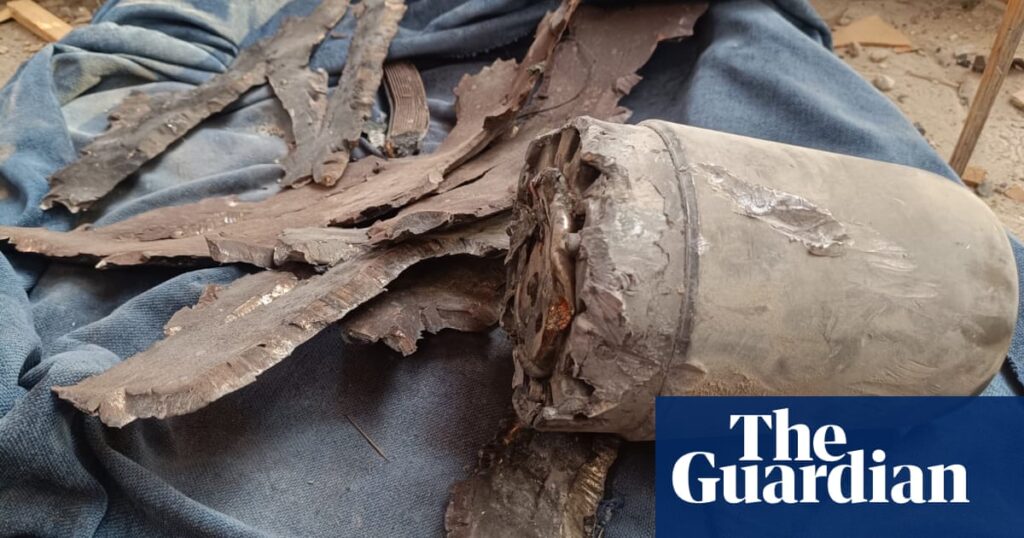
The Israeli military’s recent airstrike on a beachfront cafe in Gaza has drawn widespread condemnation after evidence revealed the use of a 500lb (230kg) bomb. The attack on Monday resulted in the deaths of between 24 and 36 Palestinians, including children and a well-known filmmaker, according to medical officials. The strike has raised significant legal and ethical questions, with experts suggesting it may constitute a war crime.
Fragments of the bomb, identified as parts of an MK-82, were found in the ruins of the al-Baqa cafe. This US-made bomb is known for its powerful blast and widespread shrapnel, characteristics that have made it a staple in military operations over recent decades. The large crater left by the explosion further corroborates the use of such a heavy munition, according to ordnance experts.
Legal and Ethical Implications
Under international law, particularly the Geneva Conventions, military forces are prohibited from launching attacks that result in excessive civilian casualties relative to the anticipated military advantage. The use of the MK-82 bomb in a crowded area has been described by international law experts as potentially unlawful.
Gerry Simpson of Human Rights Watch commented,
“The use of such a large weapon in an obviously crowded cafe risks that this was an unlawful disproportionate or indiscriminate attack and should be investigated as a war crime.”
Dr. Andrew Forde, a human rights law expert, echoed these sentiments, emphasizing the indiscriminate nature of such an attack in a civilian space.
Background and Context
The al-Baqa cafe, a family-run establishment with a history spanning nearly four decades, was a popular recreational spot in Gaza City. Despite the economic hardships faced by Gaza’s 2.3 million residents, the cafe remained a cherished venue for social gatherings. The port area, where the cafe was located, had not been included in any evacuation orders from the Israeli Defense Forces (IDF).
Historically, Israel has utilized a variety of munitions for precision strikes, often opting for smaller weapons to minimize civilian casualties. The choice of a 500lb bomb in this instance has prompted questions about the intended target and the necessity of such force.
International Reactions and Expert Opinions
Marc Schack, an associate professor of international law, remarked on the difficulty of justifying the use of such a munition, stating,
“If you are talking about 20, 30, 40 or more civilian casualties, usually that would have to be a target of very great importance.”
Trevor Ball, a weapons researcher, identified components of the bomb, noting its potential classification as either an MPR500 or an MK-82.
Meanwhile, the Israeli government has defended its military actions, asserting that the IDF never targets civilians. They have accused Hamas of using civilians as human shields, a claim that Hamas denies. An IDF spokesperson stated that the attack is under review and that steps were taken to mitigate civilian harm through aerial surveillance.
Looking Forward
The incident has intensified scrutiny on Israel’s military tactics and the broader conflict in the region. As international bodies call for investigations into potential war crimes, the situation underscores the ongoing complexities and humanitarian concerns in Gaza.
With tensions continuing to rise, the global community watches closely, urging restraint and adherence to international law. The aftermath of this airstrike may influence future military engagements and diplomatic relations in the region.







